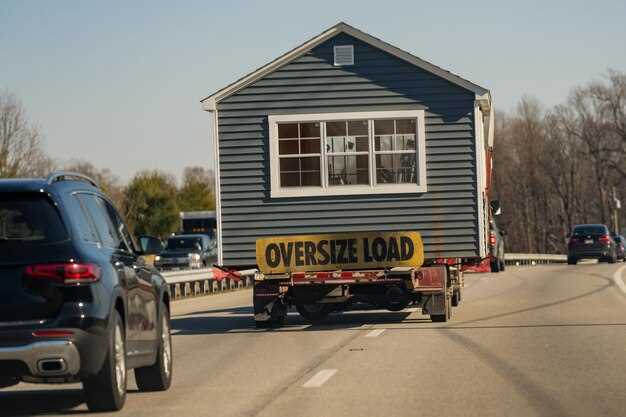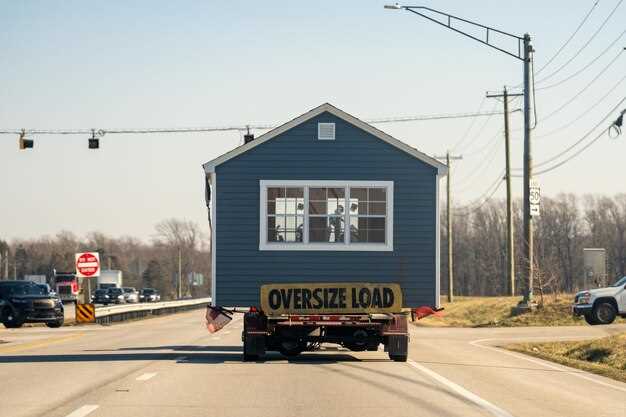
When considering the best options for acquiring a trailer, many potential owners find themselves weighing the benefits of renting versus buying. Each choice comes with its own set of advantages and disadvantages, which can significantly impact your overall experience and budget. Understanding these factors is crucial for making an informed decision that aligns with your personal needs and financial situation.
Renting a trailer can be an appealing option for those who require a trailer only occasionally or for specific projects. It provides flexibility and eliminates the long-term commitment of ownership, allowing users to access a variety of trailer types without the upfront costs associated with buying. However, frequent rentals can accumulate significant costs over time, leading some to question whether it’s more economical in the long run to invest in purchasing a trailer.
On the other hand, buying a trailer provides the advantage of ownership, offering the freedom to customize and use the trailer as needed without adhering to rental agreements. This option is particularly beneficial for individuals who plan to use a trailer multiple times throughout the year. Nevertheless, the initial purchase price, maintenance expenses, and depreciation are vital considerations that can sway one’s decision.
Cost Comparison: Renting vs Buying a Trailer

When deciding whether to rent or buy a trailer, understanding the cost implications is crucial. Both options come with their own financial considerations that can affect your overall budget and usage.
Renting a trailer typically involves a lower initial cost. Most rental companies charge a daily or weekly fee, which may include insurance and maintenance. This makes renting ideal for short-term needs or occasional use. However, if you find yourself renting frequently, the costs can accumulate quickly, potentially exceeding the price of purchasing a trailer in the long run.
On the other hand, buying a trailer requires a significant upfront investment. The initial cost can vary greatly depending on the type, size, and condition of the trailer. While ownership eliminates the ongoing rental payments, it also brings additional expenses such as insurance, maintenance, storage, and potential repairs. Over time, these costs can add up, but with proper usage, a purchased trailer can become a cost-effective solution for long-term needs.
Ultimately, the choice between renting or buying a trailer should factor in your individual circumstances, including how often you plan to use it and your budget. If your needs are temporary, renting might be the best option. Conversely, if you anticipate regular use, investing in a trailer could save you money over time.
Maintenance Responsibilities in Trailer Ownership
When considering the choice between renting a trailer or investing in ownership, understanding maintenance responsibilities is crucial. Owning a trailer typically means that the responsibility for maintenance falls entirely on the owner. This includes regular inspections, tire rotations, brake checks, and ensuring that all electrical systems are functioning properly. Additionally, owners must maintain the trailer’s exterior and interior, addressing any potential issues such as leaks, rust, or damage to the fixtures.
On the other hand, renting a trailer offers a different set of maintenance responsibilities. In most rental agreements, the rental company is responsible for the upkeep and service of the trailer. This can significantly reduce the stress associated with unexpected repairs. However, renters should still be vigilant and conduct a thorough inspection before using the vehicle, ensuring that everything is in working order to avoid incurring charges for damages upon return.
Ultimately, whether you choose to rent or buy a trailer, understanding the scope of maintenance needed is essential. Trailer ownership requires a proactive approach to ensure longevity and safety, while rental options provide convenience but come with their own set of responsibilities regarding care and condition upon use.
Flexibility and Usage Scenarios for Trailer Rentals

Renting a trailer offers significant flexibility for various usage scenarios, making it an appealing option for many individuals and businesses. Here are some key situations where trailer rentals can be particularly advantageous:
- Short-Term Projects: If you have a specific project that requires a trailer, renting is a cost-effective solution. Examples include moving, landscaping, or transporting goods for events.
- Seasonal Needs: For activities that occur only during certain times of the year, such as camping in the summer or delivering holiday decorations, renting provides the necessary equipment without the year-round expense.
- Testing Before Buying: If you are considering purchasing a trailer, renting one first allows you to test its suitability for your needs. This hands-on experience can help you make an informed decision.
- Special Events: For one-off events like festivals or fairs, renting a trailer can be ideal for transportation or storage. This way, you can meet the logistical requirements without committing to a long-term purchase.
- Business Flexibility: Businesses often face changing demands. Renting a trailer can help accommodate fluctuating inventory levels or sudden transportation needs without the capital investment associated with buying.
Overall, trailer rentals offer versatility that can cater to a wide range of scenarios, allowing renters to access the necessary resources with little financial commitment and maximum convenience.





